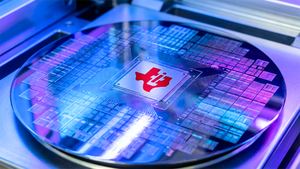
The convergence of quantum computing and semiconductor technology marks a pivotal moment in the evolution of computational power. As the world races towards building practical quantum computers, the foundational role of semiconductor fabrication, a cornerstone of modern electronics, has become increasingly apparent. This symbiotic relationship is not merely a dependency but a powerful accelerator, with advancements in chip manufacturing directly enabling the intricate and delicate architectures required for quantum processors, and quantum computing, in turn, promising to revolutionize semiconductor design itself.
This deep intersection is critical for overcoming the formidable challenges in scaling quantum systems. From creating stable qubits to developing sophisticated control electronics that can operate at cryogenic temperatures, the precision, scalability, and material science expertise honed over decades in the semiconductor industry are proving indispensable. The future of computing, where quantum and classical systems work in concert, hinges on continued innovation at this crucial technological frontier.
Engineering the Quantum Realm: Semiconductor's Indispensable Role
The journey from theoretical quantum mechanics to tangible quantum computers is paved with semiconductor innovations. Many leading qubit modalities, such as those based on silicon spin qubits or superconducting circuits, rely heavily on advanced semiconductor fabrication techniques. Silicon-based qubits, in particular, offer a compelling path forward due to their inherent compatibility with the well-established processes of the semiconductor industry, including electron-beam lithography, atomic layer deposition, and precise etching. Companies like Intel (NASDAQ: INTC) and IBM (NYSE: IBM) are actively leveraging these techniques to push the boundaries of quantum hardware, aiming for higher qubit counts and improved performance.
What sets current approaches apart is the increasing sophistication in integrating quantum and classical components on the same chip or within the same cryogenic environment. This includes developing "quantum-ready" CMOS and low-power Application-Specific Integrated Circuits (ASICs) capable of operating efficiently at millikelvin temperatures. This co-integration is crucial for managing qubit control, readout, and error correction, which are currently bottlenecks for scaling. Unlike earlier, more experimental quantum setups that often involved discrete components, the trend is towards highly integrated, semiconductor-fabricated quantum processing units (QPUs) that mimic the complexity and density of classical microprocessors. Initial reactions from the AI research community and industry experts emphasize the critical need for continued investment in materials science and fabrication precision to mitigate issues like quantum decoherence, which remains a significant hurdle. The ability to create ultra-clean interfaces and defect-free materials at the atomic level is paramount for maintaining the fragile quantum states of qubits.
Corporate Chessboard: Beneficiaries and Disruptors
The profound intersection of quantum computing and semiconductor technology is creating new battlegrounds and opportunities for tech giants, specialized startups, and established semiconductor manufacturers alike. Companies with deep expertise in advanced silicon fabrication, such as Intel (NASDAQ: INTC), TSMC (NYSE: TSM), and IBM (NYSE: IBM), stand to benefit immensely. Their existing infrastructure, R&D capabilities, and manufacturing prowess are directly transferable to the challenges of quantum chip production, giving them a significant head start in the race to build scalable quantum processors. These companies are not just providing components; they are actively developing their own quantum computing architectures, often leveraging their semiconductor heritage.
The competitive landscape is heating up, with major AI labs and tech companies like Google (NASDAQ: GOOGL), Microsoft (NASDAQ: MSFT), and Amazon (NASDAQ: AMZN) investing heavily in quantum research and hardware development, often collaborating with or acquiring companies specializing in quantum hardware. For instance, Google's Sycamore processor, while not purely silicon-based, benefits from sophisticated fabrication techniques. Startups like PsiQuantum, which focuses on photonic quantum computing, also rely on advanced semiconductor foundries for their integrated optical circuits. This development could disrupt existing cloud computing models, as quantum capabilities become a premium service. Companies that can successfully integrate quantum processors into their cloud offerings will gain a significant strategic advantage, potentially leading to new market segments and services that are currently unimaginable with classical computing alone. The market positioning of semiconductor companies that can master quantum-specific fabrication processes will be significantly enhanced, making them indispensable partners in the quantum era.
A New Horizon: Wider Significance and Broader Trends
The synergy between quantum computing and semiconductor technology fits squarely into the broader landscape of advanced computing and artificial intelligence, representing a fundamental shift beyond the traditional limits of Moore's Law. This convergence is not just about building faster computers; it's about enabling a new paradigm of computation that can tackle problems currently intractable for even the most powerful supercomputers. It promises to revolutionize fields ranging from drug discovery and materials science to financial modeling and complex optimization problems, many of which underpin advanced AI applications.
The impacts are far-reaching. Quantum computers, once mature, could unlock unprecedented capabilities for AI, allowing for more sophisticated machine learning algorithms, faster training of neural networks, and the ability to process vast, complex datasets with unparalleled efficiency. This could lead to breakthroughs in areas like personalized medicine, climate modeling, and autonomous systems. However, potential concerns also exist, particularly regarding data security, as quantum computers could theoretically break many of the encryption standards currently in use. This necessitates a proactive approach to developing quantum-resistant cryptography. Comparisons to previous AI milestones, such as the development of deep learning or the rise of large language models, highlight that this intersection represents a foundational shift, akin to the invention of the transistor for classical computing. It's not merely an incremental improvement but a leap towards a fundamentally different way of processing information, with profound societal and economic implications.
The Road Ahead: Future Developments and Expert Predictions
The coming years are expected to bring significant advancements in the intersection of quantum computing and semiconductor technology. Near-term developments will likely focus on improving qubit coherence times, increasing qubit counts in integrated circuits, and enhancing the fidelity of quantum operations. Experts predict a continued push towards hybrid quantum-classical architectures, where semiconductor-based classical control electronics are tightly integrated with quantum processors, often within the same cryogenic environment. This integration is crucial for scaling and for enabling practical error correction, which is currently one of the biggest challenges.
Long-term, we can anticipate the development of more robust and fault-tolerant quantum computers, potentially leading to widespread applications in various industries. Potential use cases on the horizon include the discovery of novel materials with superconducting properties or enhanced catalytic activity, the simulation of complex molecular interactions for drug development, and the optimization of supply chains and financial portfolios with unprecedented precision. Challenges that need to be addressed include perfecting manufacturing processes to minimize defects at the atomic level, developing sophisticated quantum software and programming tools, and building a robust quantum ecosystem with skilled engineers and researchers. Experts predict that while universal fault-tolerant quantum computers are still some years away, the iterative progress driven by semiconductor innovation will lead to specialized quantum accelerators that can solve specific, high-value problems much sooner, paving the way for a quantum-advantage era.
Forging the Future: A Quantum-Semiconductor Synergy
The intersection of quantum computing and semiconductor technology is undeniably one of the most exciting and critical frontiers in modern science and engineering. The relentless pursuit of miniaturization and precision in semiconductor fabrication is not just enabling the construction of quantum computers; it is actively shaping their architecture, scalability, and ultimate feasibility. The key takeaway is clear: the future of quantum computing is inextricably linked to the continued innovation and mastery of semiconductor manufacturing processes.
This development holds immense significance in the annals of AI history, representing a fundamental shift in computational paradigms that promises to unlock capabilities far beyond what classical computers can achieve. As we look ahead, the coming weeks and months will likely bring further announcements regarding increased qubit counts, improved coherence, and more efficient integration strategies from leading tech companies and research institutions. The ongoing collaboration between quantum physicists, computer scientists, and semiconductor engineers will be paramount. Watching for breakthroughs in silicon-based qubits, cryogenic control electronics, and novel materials will provide crucial insights into the pace and direction of this transformative technological journey.
This content is intended for informational purposes only and represents analysis of current AI developments.
TokenRing AI delivers enterprise-grade solutions for multi-agent AI workflow orchestration, AI-powered development tools, and seamless remote collaboration platforms.
For more information, visit https://www.tokenring.ai/.





